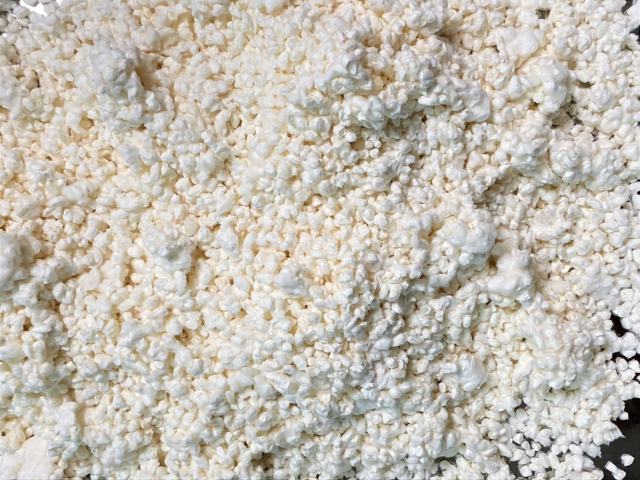
Introduction: The Digestive Harmony of Sake
Sake, Japan's renowned rice-based alcoholic beverage, is celebrated not only for its exquisite taste and cultural significance but also for its potential digestive and gut health benefits. This comprehensive exploration delves into how sake, through its unique fermentation process and natural components, supports and enhances our digestive system.
Probiotic Effects: Sake's Contribution to a Healthy Gut

In the realm of traditional Japanese cuisine, sake isn't merely a beverage; it's a potent source of beneficial probiotics that can significantly impact gut health. This detailed exploration delves into the intricacies of how sake, through its unique fermentation process, contributes to maintaining a balanced and healthy gut microbiome.
The Essence of Sake's Fermentation Process
The traditional brewing process of sake involves the fermentation of rice with the help of koji mold (Aspergillus oryzae). This crucial step in sake production is akin to the fermentation processes used in creating other probiotic-rich foods like yogurt, kimchi, and kombucha. Koji mold plays a pivotal role in breaking down the starches in rice into simpler sugars, which are then fermented by yeast to produce alcohol. This process not only contributes to the distinct flavor profile of sake but also fosters the growth of beneficial microorganisms.
Understanding Probiotics and Their Role in Gut Health
Probiotics are live microorganisms, often referred to as "good" bacteria, that provide numerous health benefits when consumed in adequate amounts. They are essential for maintaining a healthy balance of gut flora, the community of microorganisms living in the intestines. A balanced gut microbiota is crucial for effective digestion, nutrient absorption, and a robust immune system. Probiotics help in preventing the growth of harmful bacteria, promoting a healthy digestive tract, and can even improve mental health through the gut-brain axis.
Sake's Probiotic Profile and Its Benefits
While sake doesn't contain live bacteria due to its alcohol content, the fermentation process fosters a conducive environment for probiotic development. The bioactive compounds produced during fermentation, such as postbiotics, can have probiotic-like effects on the gut. These compounds support the growth of beneficial gut bacteria, contributing to a balanced gut microbiome.
Studies have suggested that moderate consumption of fermented beverages like sake can lead to an increase in beneficial gut bacteria, such as Lactobacillus and Bifidobacterium. These bacteria play a key role in digestion, help combat harmful bacteria, and support the immune system.
Sake and Digestive Health
The probiotic elements in sake aid in maintaining a healthy balance of beneficial bacteria in the gut. This balance is vital for several aspects of health, including:
- Enhanced Digestive Function: A healthy gut microbiome aids in breaking down food, absorbing nutrients, and eliminating waste effectively.
- Immune System Support: A significant portion of the body's immune system resides in the gut. A balanced gut flora helps in the proper functioning of the immune system, protecting the body against pathogens.
- Mental Well-being: Emerging research in the field of psychobiotics highlights the connection between gut health and mental health. A healthy gut can positively influence mood and cognitive functions.
Incorporating Sake into a Balanced Diet
While the benefits of sake to gut health are evident, it's essential to consume this beverage as part of a balanced diet. Moderate consumption is key, as excessive alcohol intake can negate the positive effects and may even lead to other health issues. Pairing sake with a diet rich in fiber, such as fruits, vegetables, and whole grains, can amplify its probiotic benefits.
Sake and Improved Digestion: The Role of Fermentation in Efficient Food Breakdown

Understanding Sake’s Digestive Advantages
Sake, renowned for its smooth flavor and revered status in Japanese culture, also plays a significant role in promoting digestive health. This traditional beverage, born from a unique fermentation process, possesses natural enzymes that facilitate efficient digestion. Let’s delve into how sake aids in breaking down food, enhancing nutrient absorption, and contributing to overall gastrointestinal well-being.
The Fermentation Process: A Catalyst for Digestive Enzymes
The key to understanding sake’s impact on digestion lies in its brewing process. Sake is made through the fermentation of rice, where koji mold (Aspergillus oryzae) and yeast work in tandem to convert rice starches into sugars and alcohol. During this process, a variety of natural enzymes, such as amylases, proteases, and lipases, are produced. These enzymes play a crucial role in the digestion of carbohydrates, proteins, and fats, respectively.
Amylases: Simplifying Carbohydrates
Amylases, a group of enzymes produced during the sake brewing process, are essential for carbohydrate digestion. They break down complex carbohydrates into simpler sugars, making them easier for the body to absorb. This enzymatic action can be particularly beneficial for individuals who have difficulty digesting starchy foods.
Proteases: Breaking Down Proteins
Proteases in sake assist in the breakdown of proteins into amino acids and smaller peptides. This is crucial, as proteins are vital for countless bodily functions, and their proper digestion is necessary for the absorption of essential amino acids. Regular, moderate sake consumption can thus aid in ensuring that the body receives these crucial nutrients more efficiently.
Lipases: Facilitating Fat Digestion
Lipases, another group of enzymes present in sake, are responsible for breaking down fats into fatty acids and glycerol. Efficient fat digestion is important not only for nutrient absorption but also for maintaining healthy cholesterol levels and supporting overall cardiovascular health.
Moderation and Mindful Consumption: The Key to Reaping Sake's Benefits

While the digestive advantages of sake are evident, it is crucial to consume it in moderation. Excessive intake can reverse these benefits and may lead to other health complications. When enjoying sake, focus on quality and savor the drink not just for its flavor, but also for its subtle health benefits.
Conclusion: Sake - A Toast to Digestive Health
In conclusion, sake stands out as a beverage that marries delightful taste with potential health benefits. Its role in supporting digestive wellness and promoting a healthy gut microbiome is a testament to the wonders of traditional Japanese fermentation techniques. As we enjoy this time-honored drink, we not only indulge in a piece of cultural heritage but also embrace a natural ally for our digestive health.
